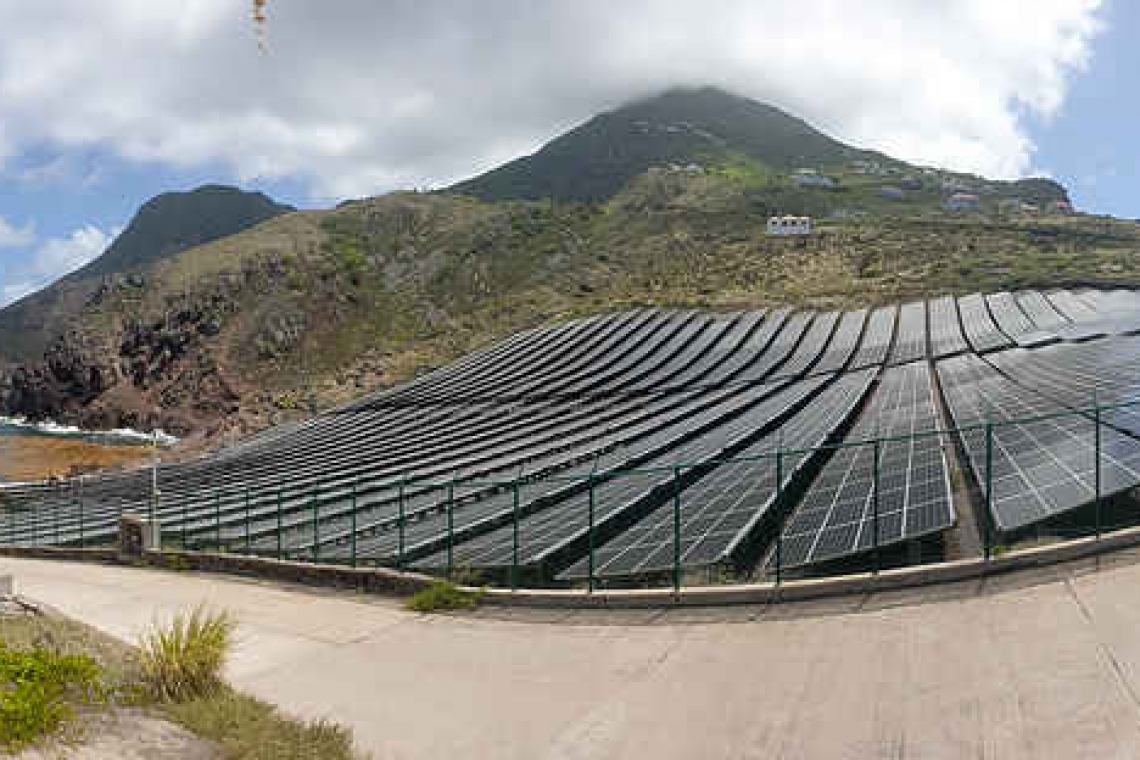Saba already has two solar parks, both located at the airport, which largely contribute to the local production of electricity.
SABA--The public entity Saba, the Saba Electric Company (SEC) and the Ministry of Economic Affairs and Climate Policy are exploring ways to further expand the percentage of renewable energy. One of the options is wind energy. For this purpose, SEC has contracted Pondera Consult BV to carry out a feasibility study.
The feasibility study fits in with Saba’s ambitions to increase the percentage of renewable energy. This goal was stated in the 2019 Energy Sector Strategy in which the Executive Council formulated the ambition to become a 100-per-cent sustainable energy island. The strategy document includes the plan to construct an additional one megawatt of renewable energy, with a focus on wind energy.
Saba, which has around 1,200 electricity consumers, already has two solar parks, both located at the airport, and is currently completing the installation of a small solar park in The Bottom.
Thanks to the generated solar energy and a contract that SEC closed with a new fossil-fuel provider, SEC managed to make Saba the island with the lowest variable electricity tariff of the Caribbean Netherlands. The objective is to sustainably reduce the electricity tariffs in the future and to become less dependent on the import of fossil fuel.
Wind energy is a logical option for Saba, in combination with the already-existing solar parks. Because, unlike solar parks, wind turbines also generate electricity at night, the placing of turbines would require less battery capacity, an expensive commodity which would be necessary in the case of adding another solar park. Saving cost in this area also means a lower price for consumers.
Wind-energy technology has developed rapidly in recent years. Whereas in the past the hurricane resistance of wind turbines was still a limiting factor to some extent, currently a number of hurricane-resistant technologies are available for the safe production of wind energy in territories located in the Hurricane Belt.
SEC has contracted Pondera to carry out a feasibility study based on wind data that were collected during an earlier study. Pondera is a Dutch company with broad expertise in the area of renewable energy and has ample experience in remote areas and hurricane-prone regions.
The goal of the study is to assess the potential of adding more renewable energy to Saba’s electricity grid, with focus on wind energy. The results should give a clear answer to the question whether wind energy in Saba is technically and financially feasible.
Pondera will look into suitable locations for wind energy on Saba, the best technologies for the island and the best set-up for three different scenarios.
These scenarios are adding one megawatt of wind energy, or about 20 per cent of the electricity need; working towards 80-90 per cent renewable energy; and working towards 100 per cent renewable energy. The last scenario will be the most complex, because a solid balancing of the grid will have to be secured.
With the outcome of the feasibility study, SEC is to work on the next steps in the area of renewable energy. Whether this will be in the form of wind energy and whether one megawatt more will be added to the electricity grid depends on feasibility, also in terms of finances.







